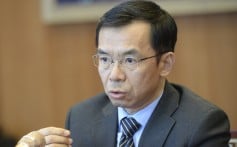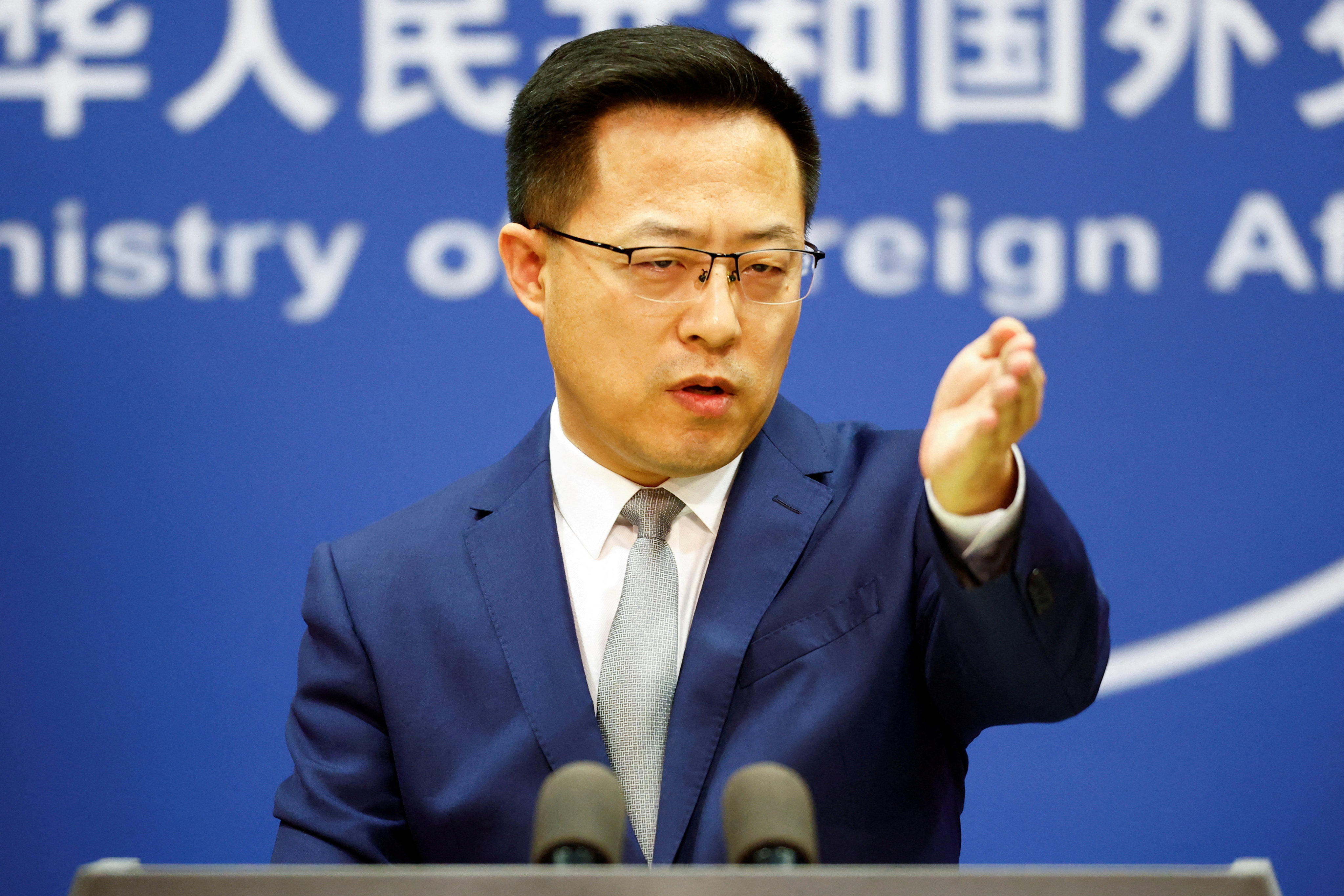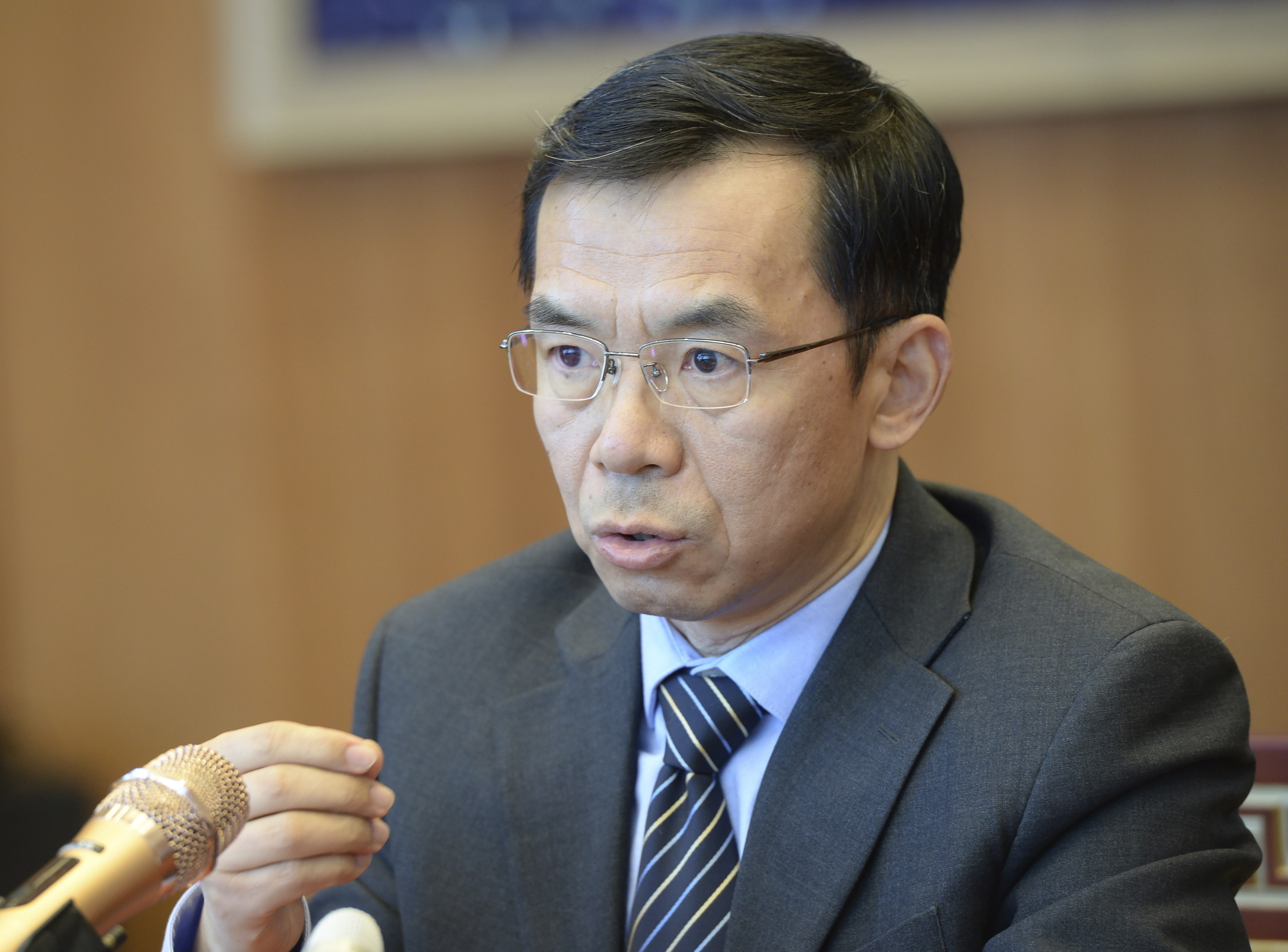- Diplomatic insiders say Beijing was taken aback by the scale of the backlash after Lu Shaye questioned the sovereignty of former Soviet republics
- Some observers believe the comments reflect a strain of thought inside the government but Lu may have been speaking out of turn when he made them
Calls are mounting for China to keep its Wolf Warrior diplomats on a tighter leash after Beijing’s ambassador to France triggered a diplomatic storm by questioning the sovereignty of Ukraine and other post-Soviet states.
Beijing was taken aback by the uproar across Europe triggered by ambassador Lu Shaye’s comments that those countries had “no effective status in international law”, according to people with knowledge of the situation.
Several incumbent and former Chinese diplomats said Lu’s comments during an interview with French news channel LCI last week, amounted to “a diplomatic accident” and had cast China in a bad light.
The incident has also exposed Beijing’s dilemma in managing its senior diplomats, according to government insiders and analysts, especially when the leadership wants to promote a “fighting spirit” among its envoys.
One former diplomat, speaking on condition of anonymity, said: “Pending a full assessment of its impact, it may be necessary to keep a tighter control of senior envoys, at least for the time being.”
The comments came soon after Beijing began a charm offensive designed to woo European leaders and create distance between Europe and the United States.
China has also been actively promoting itself as a peace mediator in Ukraine, but the comments, and growing scrutiny of its close ties with Russia – especially after President Xi Jinping’s visit to Moscow and meeting with Vladimir Putin last month – have heightened European suspicions of Beijing’s true motives.
China scrambles to defuse EU crisis over envoy’s sovereignty claims
25 Apr 2023

Beijing has taken pains to distance itself from Lu’s remarks, which drew widespread anger from Ukraine, the Baltic states of Estonia, Latvia and Lithuania, the European Union and others.
French President Emmanuel Macron, who returned from China earlier this month pledging closer political and economic ties with Beijing, was also critical of the ambassador.
A group of 80 European Parliament legislators appealed in a joint letter to Paris to declare Lu persona non grata over his remarks that “insulted the history, culture and integrity” of the countries affected.
The Chinese foreign ministry stressed that it respects the sovereignty of all former Soviet republics, while President Xi Jinping finally agreed to Ukrainian leader Volodymyr Zelensky’s request for a direct conversation on Wednesday months after he made it in an interview with the Post.
Foreign Minister Qin Gang also personally sought to reassure his counterparts from Kazakhstan, Kyrgyzstan, Tajikistan, Uzbekistan and Turkmenistan at a meeting in the Chinese city of Xian.
In a rare move, the Chinese embassy in Paris issued a statement in both French and Chinese, saying Lu’s comments were “an expression of personal points of view” that should not be overinterpreted. The embassy had posted a transcript of Lu’s interview on its official WeChat account on Monday, but deleted it hours later.
Observers described the embassy’s statement as “highly unusual” and may have raised more questions than answers about whether Lu’s faux pas was indeed made in a “personal capacity”.
Huang Jing, director of the Institute of the US and Pacific Studies at Shanghai International Studies University, noted Lu once served as an adviser to the top leadership as head of policy research at the Central Leading Group on Foreign Affairs.
“Based on his policy research experience, it’d be hard to believe it was simply a slip of the tongue,” Huang said. “But given the ministry’s statement trying to walk back his comments, it shows at least what he said was not authorised to be made public. It remains unclear whether it is due to internal differences or other reasons.”
A mainland-based political analyst also said it was plausible that Lu was voicing what some elements of the Chinese government privately thought.
“Lu is a self-claimed Wolf Warrior diplomat notorious for making radical and sometimes provocative comments,” he said.
“I wouldn’t be surprised if his views were partly based on some internal talking points and his own understanding. But what matters here is whether he is authorised to reveal those unclassified views.”
Although Beijing generally keeps a tight leash on its diplomats, it is still possible for seasoned ones, especially its top-ranking envoys stationed abroad, to voice their own, sometimes unauthorised opinions, according to Pang Zhongying, a professor of international affairs at Sichuan University.
 |
| Xi Jinping’s visit to Moscow last month had already heightened European concerns about Beijing’s stance on the war. Photo: Reuters |
In early 2020, China’s former ambassador to the US, Cui Tiankai, chose to distance himself from a conspiracy theory promoted by a foreign ministry spokesman Zhao Lijian accusing Washington of bringing Covid-19 to China.
Zhao, who has since been moved to a less high-profile post, was one of the country’s most prominent Wolf Warriors – a name derived from a series of nationalistic action movies – who have embraced Xi’s calls to show more fighting spirit in the face of what they see as Western efforts to hold back China.
Other senior diplomats, including Gui Gongyou and Zhang Jianmin, the former ambassadors to Sweden and the Czech Republic respectively, faced repeated calls from local politicians for their removal and protests from their host governments over their confrontational approach.
Lu’s rise coincided with China’s nationalist shift in diplomacy. His surprise elevation to the Paris job in 2019 was widely seen as a reward for his time as ambassador to Canada, when he made a series of blistering attacks after the arrest of the Huawei executive Meng Wanzhou.
Two years ago he defended his aggressive diplomatic approach in an interview with the nationalist website Guancha.cn, saying: “I told them that we have changed our style now and you have to adapt to our new style.”
But Sourabh Gupta, a senior fellow at the Institute for China-America Studies in Washington, said it was time for Beijing to consider the impact of Lu’s comments.
“Lu Shaye’s attempt to present himself as some sort of legal eagle in parsing the meaning of sovereignty ended up with him putting his foot in his mouth,” he said. “Calling it ‘an expression of personal points of view’ by the ambassador will not do much to limit the damage.”
He continued: “The foreign ministry should express an unreserved apology; the comments were way out of line. I don’t expect the ministry to do so though. Rather, they will hope that with the passage of time, the comments too will be seen as simply water under the bridge.
“Besides, with China getting active on the Ukraine peace facilitation front, the hope is that policy actions rather than misspoken words will dominate the headlines.”
Gupta said Lu’s comments and the support it attracted from online nationalists also underlined Beijing’s deep-rooted “anger and disgust” towards the Central and Eastern European nations, especially over Taiwan, but he was sceptical that this would lead to “wider ministry-condoned room for sharp elbows against these countries”.
“There is much to lose and little to gain from public expression of such views. To me, it seems the general internal disgust with these countries has inadvertently bubbled over into an unacceptably acerbic public comment by a single individual,” he said.
Most observers believe Lu’s career could suffer. George Magnus, a research associate at Oxford University’s China Centre, said the timing of Xi’s call to Zelensky suggested Beijing was deeply embarrassed and eager to repair its ties with Europe.
“Lu could be in big trouble even if he was only speaking what his government privately thinks,” he said.
He said Chinese diplomats would have to be more careful in the future. “There is a visceral anti-American streak in some parts of the European political scene, which China is keen to exploit, but my hunch is that China is its own worst enemy in this respect if it is not seen to be genuinely impartial and honest in its approach to Putin and Ukraine,” Magnus said.
Huang said Beijing would have to strike a new balance between the urge to exert greater control of senior diplomats and the need to get its message across.
“We’ve seen a recent trend that the leadership is generally in favour of giving more room to diplomats to speak up and improve the ability to fight … But recent controversies are clearly not in line with the end-goal of our diplomacy, that is to create a peaceful and favourable environment for China’s development.
“That’s the dilemma China faces now. Too much control would no doubt do harm to our major power diplomacy.”
Gupta also pointed out that there were no good answers to the challenge, but suggest Chinese diplomats should generally keep a low profile, speak in commonplace language and avoid legalisms.
They should be “the face of constructive engagement” or at least “engagement but not confrontation”, he added, and “leave pointed, sharp, and even angry comments” to the foreign ministry in Beijing.
https://www.scmp.com/news/china/diplomacy/article/3218777/will-china-have-muzzle-its-wolf-warrior-diplomats-after-ambassador-frances-ukraine-faux-pas














